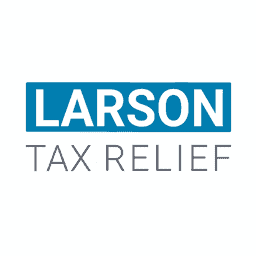You could be subject to wage garnishment if you owe money to the IRS or state taxing authority. Your wages can also be garnished if you have other unpaid federal debt, child support obligations or judgments from creditors. Unfortunately, this could be devastating to your finances and make it challenging to cover your everyday expenses and other debt obligations.
The good news is there are ways to stop wage garnishment, as discussed in this guide. You should also consider consulting with a tax relief professional for guidance on the best course of action to prevent the IRS, state taxing authorities or creditors from garnishing your wages.
What is Wage Garnishment?
Wage garnishment occurs when the IRS seizes a portion of each paycheck to cover outstanding federal tax debt. It will continue until your tax bill is paid in full unless you take the necessary actions to have it reversed.
If you receive direct payments from the federal government, they can also be subject to wage garnishment. These include federal employee travel payments, federal contractor or vendor payments, federal retirement annuities and Social Security benefits.
Causes of Wage Garnishment
Wage garnishment is typically triggered by one of the following:
- You owe the IRS for federal income tax associated with a filed tax return(s), unfiled tax return(s) or both.
- You owe state or local taxes.
- You’re behind on child support payments.
- You have unpaid student loans or owe private creditors.
The Wage Garnishment Process
Written Notice
The initial written notice from the IRS will include the amount you owe and the due date to avoid further collection action. If the balance seems a bit high, it’s because the IRS also tacks on interest and penalties until the debt is paid in full.
Second Notice
The second notice is the “Final Notice of Intent to Levy.” You’ll receive it at least 30 days before wage garnishment is set to begin if you fail to pay what’s owed by the due date or find another resolution that the IRS agrees to.
Final Notice
The final notice communicates your right to file an appeal with the IRS regarding the wage garnishment. You’ll have 30 days to respond, or the IRS will move forward with the garnishment.
Ways To Stop IRS Wage Garnishment
Pay Your Debt in Full
The easiest way to stop wage garnishment is to pay your debt in full. However, this may not be a viable option, depending on how much you owe. If you have to borrow money or use a credit card to pay the balance, you could be better off exploring other remedies to reverse wage garnishment.
Appeal Your Tax Debt
If you have a reason to believe you owe less than what the IRS is attempting to collect, you have a right to file an appeal. Be sure to request an appeal immediately after receiving the second notice or the “Final Notice of Intent to Levy.” As mentioned above, you’ll have 30 days to respond to the notice.
Get a Payment Plan
The IRS offers two payment plans to individuals who owe back taxes:
- Short-term payment plan: available to individuals who owe less than $100,000 (including interest and penalties) and can pay what’s owed within 120 to 180 days
- Long-term payment plan (installment agreement): available to individuals who owe $50,000 or less (including interest and penalties) and would like a repayment period of up to 72 months (or six years)
Offer In Compromise
An Offer In Compromise (OIC) is an agreement between the IRS and the taxpayer. In short, it allows you to pay less than what’s owed to satisfy your tax debt. The OIC acceptance rate is relatively low, particularly if you apply on your own without consulting with a tax relief professional. Still, it can provide short-term relief from wage garnishment while the IRS reviews your request.
Declare Financial Hardship/Bankruptcy
If you can prove that paying would cause undue financial hardship, the IRS may forgive your debt. Bankruptcy is also an option to stop wage garnishment. However, it is unlikely the balance will be discharged, and you’ll still owe it after bankruptcy.
Change Employers/Quit Your Job
If you quit your job and start a new one, wage garnishment will stop. However, this generally isn’t a long-term solution since it won’t take the IRS long to learn that you’ve secured new employment and started getting paid again. Furthermore, they will restart wage garnishment to collect what’s owed.
Work With a Tax Relief Professional
You may have options, whether you’ve received a notice that your wages will be garnished soon or are already dealing with the added stress of a reduced paycheck. Contact a team of tax relief experts to discuss your situation and review possible resolutions.









